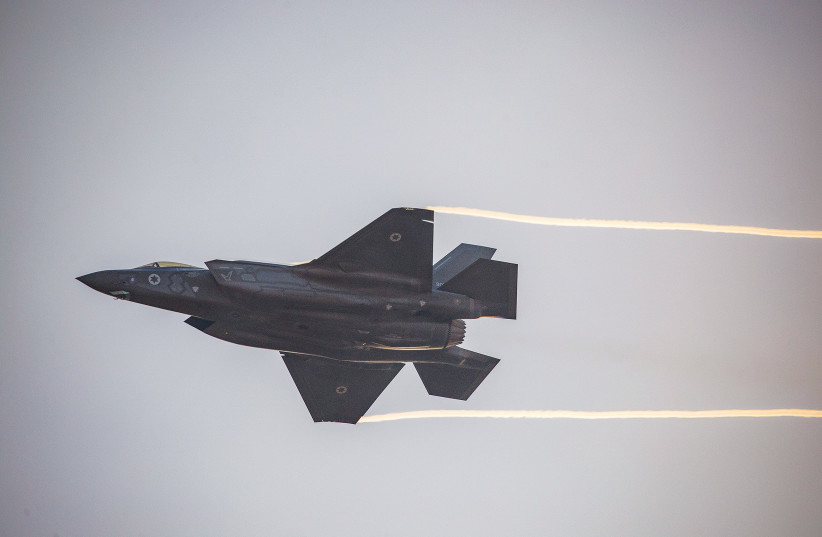The Israel Air Force will be halting training flights for its squadrons of F-35 Adir stealth fighter jets after the United States military grounded its F-35 Joint Strike Fighter fleet over a problem with the ejection seats.
The decision was made by IAF Chief Maj.-Gen. Tomer Bar Saturday night. The entire fleet will be evaluated over the coming days, with two planes examined per day by IAF teams who were given equipment by Lockheed Martin.
Each plane found to have working ejection seats will return to flight. The planes will continue to carry out missions during the evaluations only after a special authorization from Bar.
“The examinations must be done in a strict and thorough manner in order to return the fleet to full competence while maintaining a high safety standard,” Bar said according to a statement published by the IDF Spokesperson’s Unit.
“The examinations must be done in a strict and thorough manner in order to return the fleet to full competence while maintaining a high safety standard,”
IAF Chief Maj.-Gen. Tomer Bar

The USAF grounded the jets due to a faulty cartridge-actuated device inside its ejection seat that would prevent the pilot from being able to safely blast out of the aircraft during an emergency.
On Saturday the IDF said that “the air force received information about a safety finding in the ejection seats in the F-35 array that is assessed as low risk,” the IDF Spokesperson’s Unit said, adding, “A directive was received to carry out tests during the next 90 days.
“Israel was coordinating its response with the US military and the F-35 Joint Program Office,” the military continued.
Israel has 33 of the advanced jets in two squadrons, the 116th Lions of the South Squadron and the 140th Golden Eagle Squadron based at Nevatim Airbase. The IAF also has a third squadron used for training.
The jets have an extremely low radar signature, allowing them to operate undetected deep inside enemy territory. Since becoming operational in 2018, the F-35 squadrons have carried out missions both over the Gaza Strip and as part of Israel’s “war between the wars” campaign.
The fleet just took part in a week-long international drill with Italian F-35 pilots, dubbed “Lightning Shield.”
In a statement, Lockheed Martin said the company “continues to work closely with the Joint Program Office and customers to ensure safe and effective operations for the F-35 fleet. We are assisting with seat inspections where appropriate to support recent JPO and service direction.”
What was the problem?
The seat’s manufacturer, Martin-Baker, said the problem was first identified in April when “an anomaly was discovered” with one of the devices in the seats of an F-35 at Hill Air Force Base in Utah.
“This was quickly traced back to a gap in the manufacturing process, which was addressed and changed,” the statement added.
According to Air Force Times, a maintainer found during an inspection “that an ejection cartridge felt suspiciously light” and “after a closer look, the cartridge turned out to be missing its explosive charge that would lift someone to safety.”
The cartridge uses magnesium powder to ignite propellant.
“Out of an abundance of caution, ACC units will execute a stand-down on July 29 to expedite the inspection process. Based on data gathered from those inspections,” according to Air Combat Command spokeswoman Alexi Worley. “ACC will make a determination to resume operations.”
Air Force Times said that as of Wednesday, some 2,700 F-35 ejection seat cartridges had been tested and only three failures were discovered.
